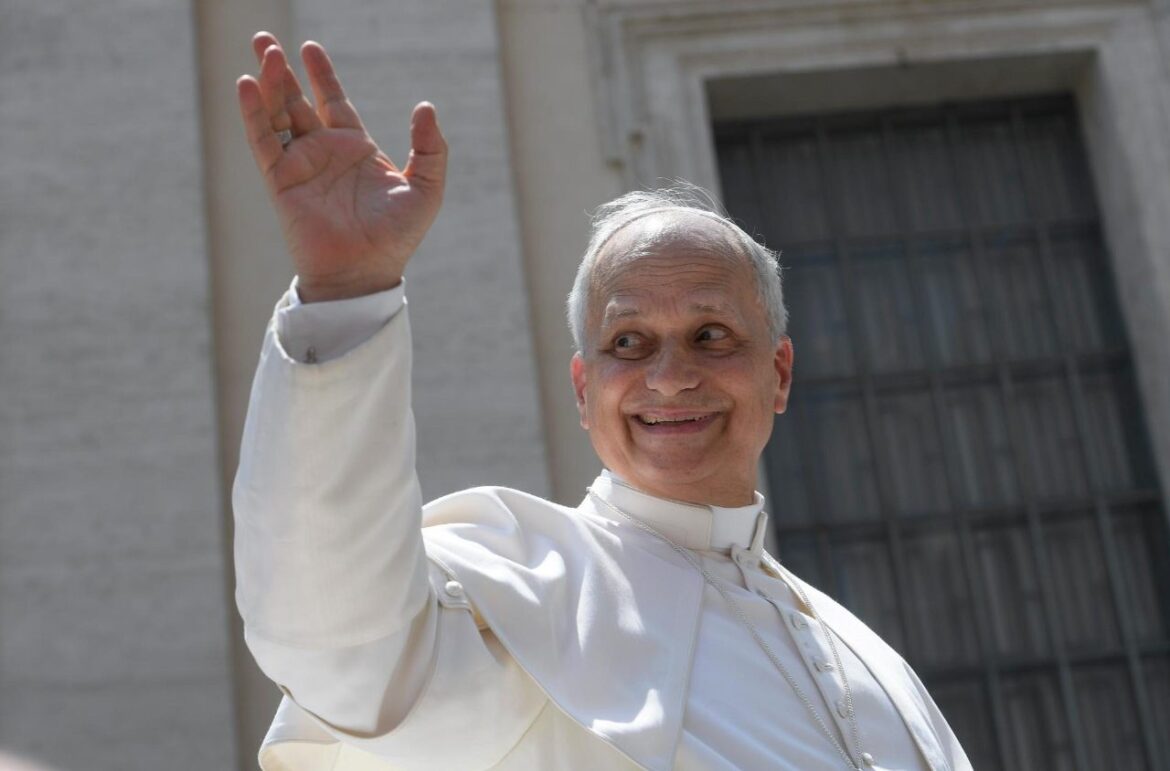
In a message to the Networks of Indigenous Peoples and the Network of Indian Theology Theologians, Pope Leo XIV encourages a rediscovery of the Jubilee Year as a time of grace, forgiveness, and shared hope.
By Sebastián Sansón Ferrari
Pope Leo XIV has sent a message to the Networks of Indigenous Peoples and the Network of Indian Theology Theologians, as they celebrate the Jubilee Year of Hope.
In the text, published on Thursday, October 16, the Pope recalls the desire of his predecessor, Pope Francis, who, in planning the Jubilee events, “wanted to highlight the universality of the Church, manifested in many vocations, ages, and life situations: families, children, teenagers, young people, the elderly, ordained ministers and laypeople, servants in the Church and society.”
He explained that “when we pass through the Holy Door, more than performing a symbolic gesture by entering a beautiful temple, what we truly seek is to enter, through faith, into the very source of divine love – the open side of the Crucified One”.
“It is in this faith that we are a people of brothers, one in the One (cf. St. Augustine, Commentary on Psalm 127:4). It is from that Truth that we must reread our history and our present reality, to face the future with the hope to which the Holy Year calls us, despite our labors and tribulations”.
Reconciliation with History
He also acknowledged that “the long history of evangelization experienced by our Indigenous Peoples is full of both light and shadow.” Citing St. Augustine, he emphasized that even when the messengers of the Gospel were not always consistent with its message, “God Himself works grace.” Thus, the Jubilee is a favorable time “to forgive our brothers from the heart” (cf. Mt 18:35), to reconcile with one’s own history, and to give thanks for God’s mercy.
Pope Leo XIV emphasized that it is only through trustful surrender to divine power that peoples can truly become the People of God. He recalled that the Lord “has planted the seeds of the Word in all cultures” and causes them to flourish in new ways. In this context, he quoted St. John Paul II:
“The power of the Gospel is transforming and regenerative everywhere. When it penetrates a culture, catechesis would be impossible if the Gospel had to change upon contact with cultures”.
A Dialogue That Enriches
The Pope affirmed that dialogue and encounter make it possible to discover “the abundant life Christ offers to all peoples.” This life, he noted, is manifested in human fragility, “marked by original sin,” and in the grace of Christ, “who shed every last drop of His blood so that we might have life in abundance”.
Leo XIV expressed gratitude for the contribution of Indigenous communities and Indian Theology to ecclesial reflection, highlighting that their worldview “resonates with a deep longing for communion with the Creator and creation” – a message the Church must embrace and accompany with discernment.
Gospel Boldness and Mission
Before concluding, the Pope evoked a term cherished by his predecessor Francis: parrhesia – that evangelical boldness which drives us to “go out of ourselves to proclaim the Gospel without fear and with freedom of heart.
He affirmed that, in the concert of nations, Indigenous Peoples must present with courage and freedom their own human, cultural, and Christian richness. The Church, he added, “is enriched by their unique voices, which have an irreplaceable place in the magnificent choir where all proclaim: Eternal Lord God, joyfully we sing to You, to You our praise.”
Mary, Star of Evangelization
Finally, Leo XIV entrusted the work of the networks to Our Lady of Guadalupe, “Star of Evangelization,” who “showed how Jesus Christ made two peoples one, breaking down the wall of hostility that divided them”.
The message concludes with a call to renew the missionary mandate:
“Go, and make disciples of all nations”, spreading “the joy that springs from encountering His Divine Heart.”

